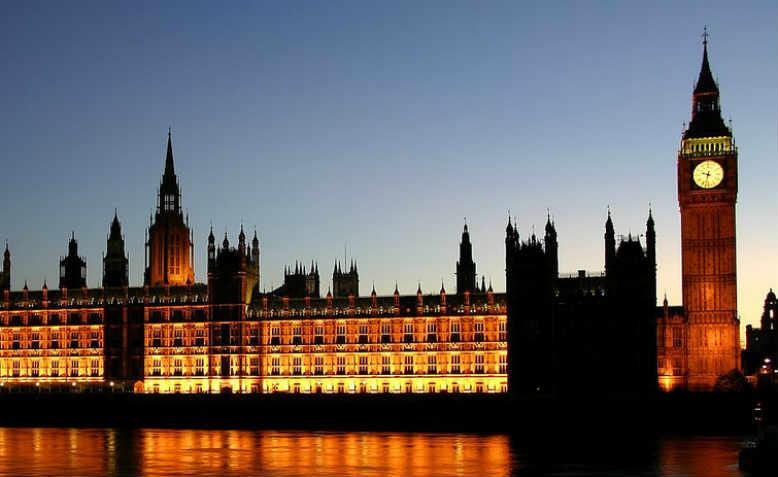 Houses of Parliament at night, 2010. Photo: Flickr/Shane Global
Houses of Parliament at night, 2010. Photo: Flickr/Shane Global
As parliament rises until after the election, it’s worth looking at where we are, writes Lindsey German
The Tories are well ahead in the polls, determined to avoid debate as much as possible, as the clockwork performances of their leader, and the unpopularity of their policies can only dent their lead.
May wants complete control to negotiate a Brexit for the Tories and use the negotiations to excuse everything from pension cuts to economic crisis.
Labour is in a weak position, for which the PLP has to take much responsibility. Every day the BBC delights in reminding shadow ministers of their attacks on Jeremy Corbyn last year. Some of the mud has stuck from these and media attacks – no doubt why Boris Johnson feels it is fitting for him to launch a grotesque personal attack on the Labour leader today.
Ukip is in meltdown, and moving further to the right – hence the racist desperation of policies like banning the burka or checking primary children’s vaginas for evidence of FGM. The Lib Dems are desperate to rebuild on the basis of opposition to Brexit but are limited in their ability to do so, especially since their main support outside London is in Leave areas. The SNP will be pretty much the same and the Greens look like they are getting squeezed compared with 2015.
Whereas previous elections have been marked by policies which are all variations of the extreme centre, this time there are much more clearly delineated views from the different parties. Corbyn’s Labour is putting forward some good strong left reform policies, arguing in defence of public services and for a peaceful and equitable foreign policy. The slogan ‘for the many, not the few’ sums that up.
Military
The Tories, on the other hand, are intent on making a bonfire of even their own previous manifesto promises. There will be no triple lock on pensions, tax and national insurance will rise and there will be an even freer ride for corporations. The special relationship will be ramped up, with Britain the outrider for Donald Trump’s military adventures.
Meanwhile in the centre, Blair, the LibDems, possibly the Greens and die hard remainers are looking to cross-party alliances, tactical voting and maybe a future centre party. So politics are in flux both during this election and beyond it. Even a big Tory majority will not end that. And that majority is by no means certain: I would guess the only way is down for the Tories from now on.
Whether that will be enough to get them out still looks unlikely but not impossible. And if she ends up with another small majority, that isn’t a good place for her given what she wanted to achieve was a massive majority to give her a free hand.
Overcoming
Will the way people voted in the EU referendum change long-standing political allegiances for Labour? This is still a question to which we don’t know the answer. But we should insist that while Brexit is an important question, it cannot and should not be the only one. Housing, health, education, working conditions, inequality are all issues which would still be central if the referendum had gone the other way. And these questions will be the battleground with May.
Labour has a mountain to climb in getting these ideas across and persuading voters that they have an alternative. Here, they are facing not just overcoming the attacks on Corbyn but years of Labour neglect in its safe seats. But mountains are climbed. The alternative will be a serious defeat for everything that stands for progress and equality. Personally, I’m not sure how much the Tories can continue with the ‘strong and stable leadership’ line. Even May looked embarrassed at its repetition yesterday in parliament. Perhaps people will start thinking that they don’t want this woman in a strong position?

